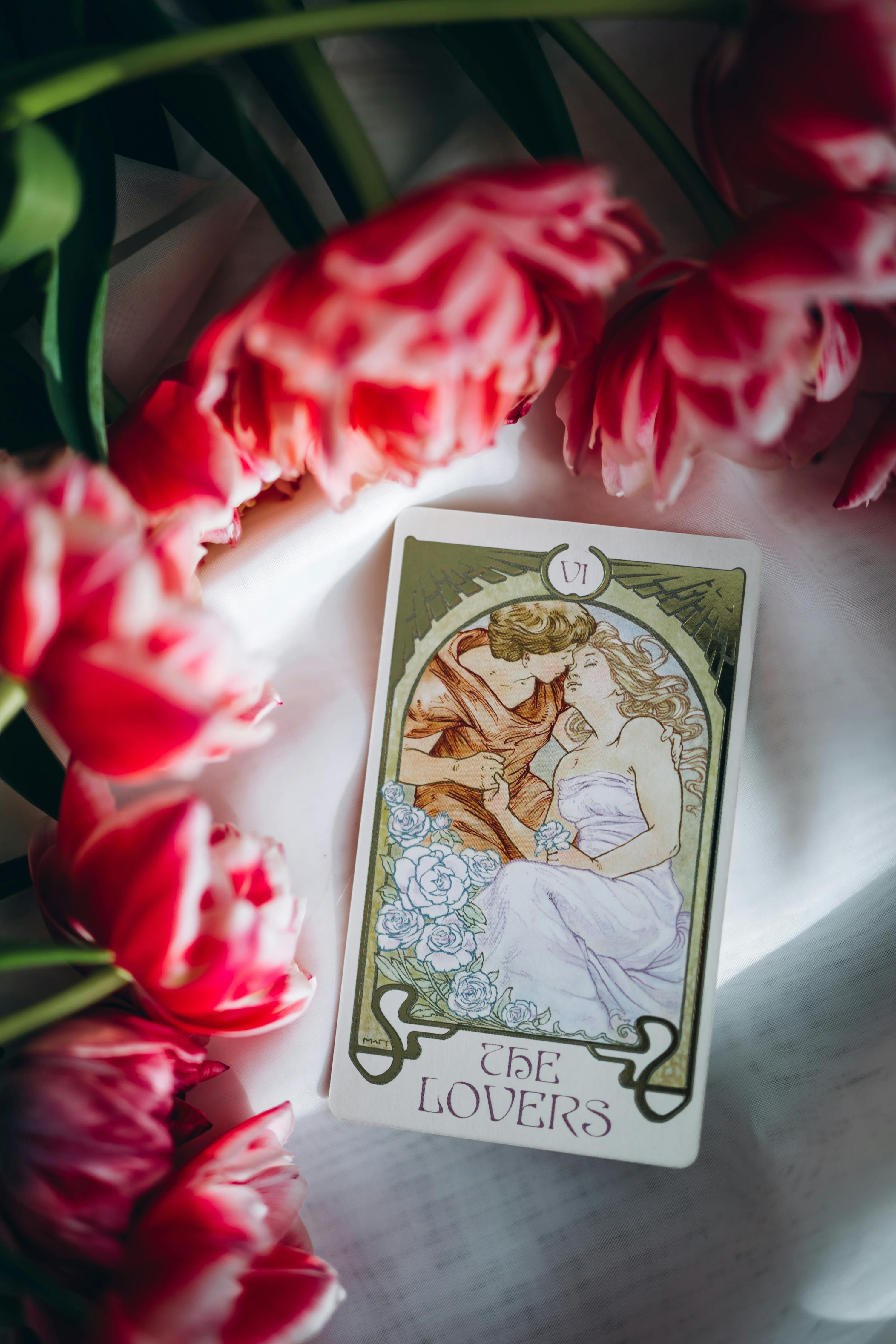Sometimes the hardest thing to see clearly is when someone isn’t meant to stay in your life.
Love, loyalty, and memories can blind you from recognizing the signs that God is gently pulling you away from a relationship that no longer serves your heart. Yet, when God steps in,
He often leaves clues, whether it’s through constant conflict, sudden distance, or a deep inner unease that won’t go away.
These signs aren’t meant to hurt you, but to protect you and prepare you for something greater. Recognizing them can change the course of your future in the best way.
1. Frequent Conflicts That Drain Your Energy
Constant disagreements in any relationship can exhaust your emotional reserves. When arguments become the norm rather than the exception, it indicates deeper incompatibilities.
It’s important to observe whether conflicts are constructive or repetitive and destructive.
If you find yourself repeatedly arguing over the same issues without resolution, it might be a sign to reconsider the relationship.
In practice, try maintaining a log of recurring disputes to recognize patterns. This awareness helps you decide if the relationship is worth repairing or letting go.
Setting healthy boundaries during conflicts and communicating calmly can test whether the relationship has room for improvement or if it causes more harm.

Photo by Alena Yanovich
2. Feeling a Persistent Loss of Peace
Your inner peace is a valuable indicator of emotional health. If you feel anxious, restless, or uneasy around someone frequently, those feelings should not be ignored.
Emotional discomfort often signals misalignment with your values or personal growth.
A relationship that consistently disrupts your tranquility may be hindering your spiritual journey.
To address this, practice mindfulness to identify your emotional responses around the person. Notice if peace returns when you distance yourself or if the unease lingers.
Choosing relationships that foster calmness and support inner contentment can transform your overall well-being.
3. Trusting Your Intuition About Relationships
Your gut feelings are powerful guides in relationships. Sometimes, you may sense something is off even if there are no obvious reasons.
Pay close attention when your intuition signals discomfort or distrust.
These feelings often stem from subconscious observations of behavior or energy that your conscious mind hasn’t processed yet.
Practically, take time to reflect when you experience strong intuitive signals. Journaling or discussing these feelings with a trusted friend can help clarify your thoughts.
Developing trust in your intuition empowers you to make decisions aligned with your true needs and values.
4. Repeated Challenges That Block Progress
When you face the same obstacles in a relationship repeatedly, it is a clear sign that growth is being stifled.
Recurring misunderstandings, emotional setbacks, or unresolved conflicts indicate an unhealthy cycle. These loops prevent positive change and can drain motivation.
Identify patterns by noting which challenges arise frequently and assess whether efforts to resolve them have been effective.
If problems persist despite attempts to improve, it may be time to accept that the relationship is not meant to continue in its current form.
5. Shifting Priorities That Create Distance
As individuals grow, their priorities and interests naturally evolve. Sometimes, this leads to diverging paths with people who were once close.
Recognizing when your goals and values no longer align is crucial for personal development.
Holding on to relationships that no longer support your growth can cause frustration and dissatisfaction.
Regularly evaluate whether your connections inspire and support your current life direction.
Embracing change allows space for new, more aligned relationships to flourish.
6. Emotional Disconnect and Lack of Support
Strong relationships are built on vulnerability, trust, and emotional connection. When these components fade, the relationship becomes hollow.
Notice if you or the other person avoid sharing feelings or fail to provide emotional support. This lack of connection can lead to loneliness even when you are together.
To address this, try initiating honest conversations about your emotional needs and observe the response.
If the effort is one-sided or met with resistance, it may indicate that the relationship is no longer healthy or fulfilling.

Photo by George Frewat
7. Communication Breakdown That Causes Distance
Effective communication is essential for understanding and closeness. A persistent breakdown can breed misunderstandings and emotional distance.
Pay attention to how conflicts are discussed and whether both parties listen actively. If conversations frequently end in frustration or silence, it signals a disconnect.
Improving communication takes patience and practice, but when efforts repeatedly fail, it may be a sign to reconsider the relationship.
Consider seeking mediation or counseling before making final decisions, as sometimes external guidance can help bridge communication gaps.
8. Differences in Spiritual or Moral Paths
Shared values often bond people, especially when it comes to spirituality and morals. Diverging beliefs can create tension and distance over time.
When fundamental principles no longer align, it can feel like growing apart naturally. This is especially true if each person’s worldview guides daily decisions and lifestyle.
Reflect on whether you can respect and accept the other’s beliefs without compromising your own.
Sometimes, maintaining relationships with differing spiritual or moral paths requires extra empathy, but if conflict arises often, separation may be healthier.
9. Recognizing Toxic Behavior Patterns
Toxicity in relationships can manifest as manipulation, disrespect, or emotional abuse. These behaviors undermine your self-worth and happiness.
It is essential to identify and address these harmful patterns promptly. Ignoring toxicity allows it to grow and damage your well-being.
Common signs include guilt-tripping, controlling actions, and dismissiveness of your feelings.
Setting firm boundaries and seeking support from trusted people or professionals can help you remove toxic influences from your life.
10. Absence of Support and Understanding
Mutual support is a cornerstone of meaningful relationships. When you feel misunderstood or unsupported, it weakens the bond significantly.
Evaluate whether your needs for empathy and encouragement are met consistently. A lack of these elements can leave you feeling isolated even in close relationships.
Communicate your needs clearly and observe the response.
If support is unavailable or dismissive, it may be necessary to distance yourself to protect your emotional health.
11. Persistent Negative Emotions Around Someone
Continuous feelings of anger, frustration, or resentment when interacting with someone indicate a harmful dynamic.
Such emotions are red flags that the relationship may be hindering your happiness and growth.
Staying in these relationships often leads to increased stress and lowered self-esteem.
Make a conscious effort to notice patterns in your emotional responses and seek to understand their root causes.
Sometimes, addressing issues directly can help, but if negativity persists, it is a strong sign to move on.

Photo by cottonbro studio
12. Decline in Mutual Respect
Respect sustains trust and connection. When respect diminishes, the foundation of the relationship weakens.
Observe if boundaries are crossed, or if there is a lack of consideration for your feelings or opinions. These behaviors erode the relationship’s quality over time.
Maintaining respect requires effort from both sides. If it becomes one-sided or absent, the relationship’s health is compromised.
Prioritize relationships where respect is consistently present and valued.
13. Loss of Joy and Fulfillment Together
Relationships should bring happiness and enrichment. When joy fades and interactions feel draining, it is cause for reflection.
Notice how you feel after spending time with the person. Are you energized or exhausted? A consistent loss of happiness signals misalignment with your emotional needs.
Work on reconnecting through shared positive experiences, but recognize when efforts do not improve your feelings.
Choosing to part ways can open space for connections that nurture your happiness.
14. Paying Attention to External Signs and Messages
Sometimes, external events or feedback from others provide clarity about a relationship’s future.
Others’ concerns or unexpected changes can act as signals that a relationship is no longer beneficial. These signs often reinforce your own feelings and intuition.
Be open to observing how circumstances unfold around you and consider advice from trusted confidants.
Recognizing these messages helps you make informed decisions aligned with your growth.
Final Thought
Understanding these indicators helps you navigate difficult relationship decisions with confidence.
Each sign points towards prioritizing your emotional and spiritual well-being. Letting go is not about failure but about creating space for healthier connections.
Apply these insights to assess your relationships honestly and take steps toward positive change.
Remember, growth often requires courage and self-compassion.
Real-Life Story of Recognizing When to Let Go
Sarah had been friends with Mark for years, but recently, their interactions became tense. Arguments over small issues turned into frequent fights, leaving Sarah emotionally drained.
Despite her efforts to communicate and resolve conflicts, Mark’s dismissive attitude and lack of support persisted. Sarah also noticed that she felt anxious and uneasy whenever they met.
After reflecting on her feelings and discussing with close friends, Sarah trusted her intuition and decided to take a break from the friendship. Over time, she found peace and began forming new connections aligned with her values.
This decision, though difficult, ultimately led to Sarah’s personal growth and greater happiness.
Example of Spiritual Growth Through Relationship Changes
James and Emily grew apart spiritually as their beliefs evolved differently. James embraced a more mindful and compassionate lifestyle, while Emily’s views became more rigid and judgmental.
Their conversations often ended in frustration, and mutual respect declined. Recognizing these changes, James chose to step back from the relationship to focus on his spiritual journey.
This allowed both to grow authentically without forcing alignment. James later formed friendships that supported his values, illustrating how letting go can be a positive step toward fulfillment.


